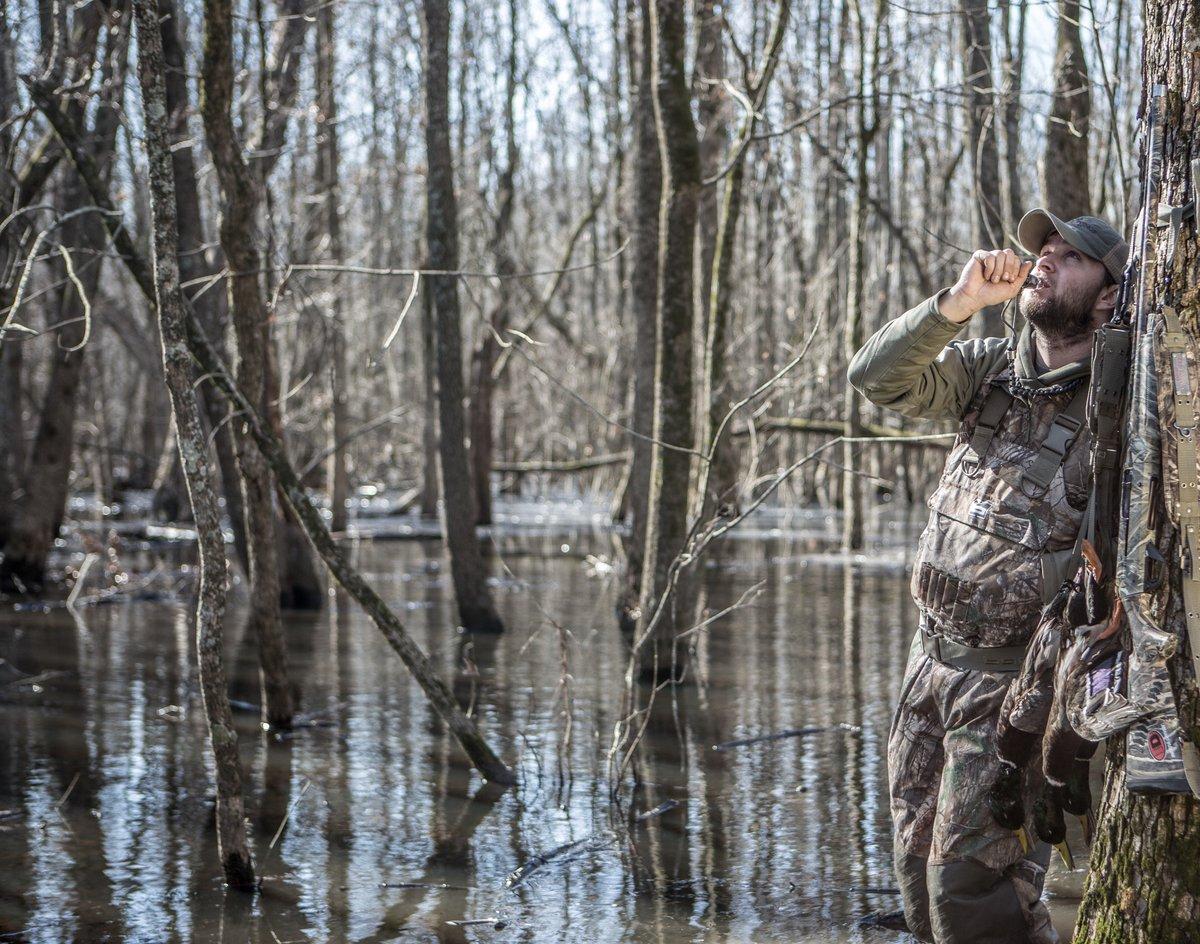A pro describes the differences in calling on stage and in the field

While it's not for everybody, contest calling will help you become a better caller. Before you start typing that nasty rebuttal, I said a better caller, not a better hunter. Hunting calling and contest calling are near polar opposites in practice. When hunting, you must be able to read the ducks and adjust your calling, depending on how they respond. You need to know what to say, when to call, and, more importantly, when to shut the heck up. David understands the difference between calling before judges and calling for ducks. Being a hunter first, then a competitive caller, he is seasoned both in the field and on the contest stage. Let's see what he has to say on the subject of hunting and duck calling…and how you can become a better duck caller.
JB: How did your life of duck hunting and contest calling begin?
DSJ: I started duck hunting when I was 8 or 9 years old with my grandfather, the late Joe Barnes. My grandfather would take me with him to the Arkansas fish farm where he worked, drop me off at the corner of a pond, and head off to work. Every now and again, he'd come back to check on me. That was my first experience in duck hunting. When I got a little older, I asked him where the big ducks like Mallards were. He told me that the White River bottoms offered some of the best duck hunting around and that if I could get a place on the White River, to never let it go because during the good years, it would be the best I'd ever encounter. (I still hunt there today!)
In 1998-99, I ran into an old friend from school—Robb Watts who was working for Rick Dunn, former world champion and owner of Echo Calls out of Beebe, Arkansas. He asked me if I ever thought about competition calling, so I decided to give it a try. I started to go to calling practice at Rick's shop one night every week, and I entered my first contest in the spring of 2000.
JB: What advice to you have for a hunter looking to get into competitive calling?
DSJ: My word of advice is that you first must understand that it normally takes about three years to get competitive. Those were the words to me from Rick Dunn when I first stated. It takes a lot of practice, as it does for just about anything. Second, you should listen to the top 10 callers in the World Duck Calling Championship [YouTube and CallingDucks.Com both have videos] in order to see what judges listen for in a routine. Also, you should have an experienced contest caller like Rick Dunn or me listen to your routine and offer criticism where it's needed.
JB: Some have said contest calling, Main-Street style in particular, has no bearing on actually calling ducks. How do you respond to this?
DSJ: I know that some say contest calling or Main-Street style has no bearing on actually calling ducks. I will agree and disagree. Main-Street-style calling is for what it says: calling in a Main-Street format contest. It is nothing that I would actually use while duck hunting; I do not hunt with my competition call. When I started competition calling, I was a decent duck caller. Now, after calling in competitions, I am much better at calling ducks (from using the hail calls to learning different types of duck sounds on the cadences and the feed call). Competing has definitely made me a better duck caller, overall. Competition calling is not for everybody, though. In Main-Street style calling, we are trying to paint a picture for the judges: Calling at ducks at a long distance and getting them closer as we get to our cadences (from low end duck sounds to the feed call). At this point in a routine, imagine the ducks flaring from a hunter looking up too early, and now you have to call them back to you. Of course, we also have 90 seconds to blow our routine at a high volume. If you hit one note past the 90 seconds, you are disqualified. While you generally do the same thing when you are duck hunting, it's at a lower scale and volume. And when you are actually hunting, you have to read the ducks and know when to call and what call to use. In contrast, during competition, you have a routine; it is the same every round, and it must be perfectly executed.
JB: How do you tune your contest call vs. your hunting call?
DSJ: When I tune my contest call, I have to get my reed at the right length and make sure that the sound is a very broad tone and a clean tone (not too hard to push air though the call). I generally do the same to my hunting calls, but it is not quite as crucial as it is on the competition call.
JB: If you had one call to take to the blind or the timber with you, what would it be?
DSJ: If I only had one call to take with me, I would have to say it would be my Green Bois D'Arc Timber Call. I can get loud enough for long distance, and it is very soft for the up-close ducks.
You may not like it, but I think we call all agree, competitive calling can help take your calling game to the next level. Besides that, it's just plain fun. The camaraderie you feel at a contest is as close to hunting camp as I've seen, and that adrenaline rush before walking onto the stage rivals the feeling you get when a big group of greenheads come flapping into the timber. Okay, it's not that awesome, but it's darn close.






